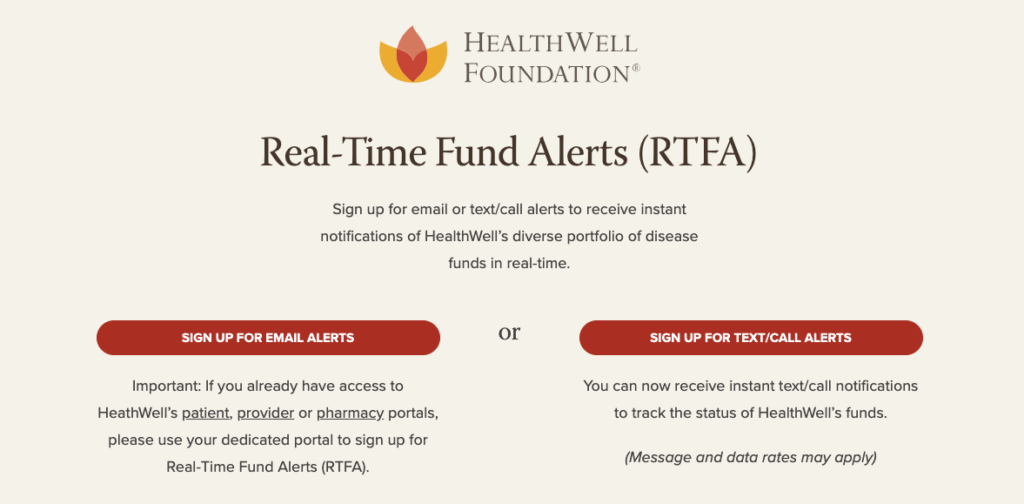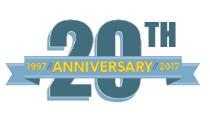Last Updated on October 21, 2024
Navigating the health care landscape can be daunting, especially for underinsured patients who face significant financial barriers to accessing necessary treatments. HealthWell Foundation, a valued partner of NeedyMeds, plays a crucial role in addressing these challenges by providing financial assistance to patients struggling with out-of-pocket costs. Today, we have the pleasure of speaking with Alan Klein, Chief Development Officer at HealthWell, to gain insights into the foundation’s mission, the hurdles faced by underinsured individuals, and the innovative solutions HealthWell employs to ensure equitable access to health care.
What are some of the common challenges faced by underinsured patients that HealthWell aims to address?
HealthWell is trying to function as a bandaid on a broken system for underinsured folks. A lot of times patients can’t afford their out-of-pocket medication copays or insurance premiums in order for them to access the medications that they’ve been prescribed by their physicians to treat a variety of conditions.
I think we’re around 95 different disease areas. Some of them are open, some of them are closed. When we do get funding, our donors can actually pick and choose the disease areas to which they donate. We don’t make the decision by ourselves; they can earmark a specific disease for which they’re most interested.
But we are able to help patients with any of their out-of-pocket obligations as long as they meet the following criteria:
- They have to have some insurance and that insurance has to pay first. Basically, that insurance is adjudicating that it’s an appropriate claim.
- Secondly, they have to meet the income threshold in their household to be given a grant at HealthWell. Usually that is up to 500% of the Federal Poverty level that is adjusted for their household size and their geographical location. If they’re paying in Manhattan, they have more bandwidth than if they’re perhaps in the middle of the country in a rural area, because the cost of living is higher [in New York].
- Thirdly, they have to be diagnosed with a disease for which we have an open fund and then be prescribed something that is either FDA approved or listed in the clinical compendia, and if that’s the case we’ll reimburse everything that they have for out-of-pocket-costs for 12 months — the grant is only good for 12 months, but it’s not tied to the calendar year. It’s basically tied to whenever they get approved and they have 12 months from that date to utilize everything up to their cap. If we have that disease area fund still open by the time that 12 months rolls around, they can reapply for another 12 months and continue the process accordingly.
Can you provide examples of the types of medical treatments that HealthWell provides financial support for?
It’s for any medication that’s FDA approved or compendia listed, so [for name brands], it’s for generics, it’s for biologics, it’s for anything that the FDA has said this is a medical treatment for that disease, or it’s being used by clinicians in the field to treat that disease that will get a thumbs up on our product list.
How can a patient track what disease funds are available? Is there any recourse when a disease fund has closed?
We are open and transparent [about that] on our website. All they have to do is click on our fund list and it shows which funds are currently open, which funds are currently closed, or which funds are in a different status. It’s super easy to see and sort by those criteria as well, and when you click on the individual funds, you can see all the parameters associated with getting into that fund (meaning what income you must have from a threshold perspective to meet, what products do we reimburse on). All the descriptors are on that fund page so they can see that very well. If they see that the fund is closed, they certainly can sign up for what we have which is called Real-Time Fund Alerts. All you have to do is click on the fund of interest to you [and if you see that it’s closed], you can sign up for an alert when the fund reopens, so you don’t have to keep going on our website and clicking refresh — you can sign up for a text alert, an email alert, or a phone call — to be notified as soon as that fund status changes from closed to open. By signing up, you’ll get the same head-start that everybody else will get.

Is there a way that someone could apply for funding even though their specific disease isn’t listed?
Almost all of our funds are disease-specific. We do have some funds, for example, that are more catch-all funds that are a bit broader. In the past, we had a pediatric assistance fund that helped pediatric patients with a variety of different disease areas and also a lot of different things within those disease areas (not just copays). We have behavioral health funds that help with a variety of behavioral health costs, including medication, transportation costs, and talk therapy costs. We also have a very large vitamins and supplements initiative for cystic fibrosis and for other disease areas. Some funds offer assistance for lab reimbursements, and certainly other things that we are looking to identify as things that might be burdensome to patients. We only have a finite amount of funding, so our main objective is to make sure that people pick up their prescriptions at their pharmacy or provider office, and don’t get an out-of-pocket bill that precludes them from following their treatment regimen as prescribed by their physician. That’s our prime directive.
How does HealthWell ensure that their funds are distributed equitably across different disease areas?
Our donors get to choose where their donations go in terms of the disease area. But within each disease area fund, we definitely stick to a first come, first served philosophy. It’s almost like you’re going to the supermarket, you want something from the deli counter, you take a number, and then they serve people in order. Nobody gets to go ahead of anybody else. We go exactly down that list, whether you call in on the phone or apply online. We take people on a first come, first served basis.
How does HealthWell adapt and expand its portfolio of Disease Funds to meet the evolving needs of patients?
We have a list of about 40-50 different diseases that we would love to open upon an initial donation from one of our donors, or for multiple donors, where we identify that there is patient need, but we’re awaiting that first donation. Our board of directors has to authorize every single fund that we open and define it accordingly. Those that they’ve authorized and defined but have yet to receive an initial donation, we keep on a separate list, and we make sure all of our prospective donors know that we would love to open a fund in these disease areas, and then we put that as part of every presentation to them [and say] “by the way, let’s consider the following diseases.” They might be interested in what they don’t see on that list but we would love to open.
Have patients asked you to open a fund for a particular disease and have you taken that into account?
Yes! We get field requests all the time, and we track those accordingly. We also keep track of FDA actions. So we know when the FDA might act on different products in different disease areas. And by knowing that, we know that there’ll be additional — or could be additional — products in the marketplace that people could have a problem affording, so we try to open up funds in those areas because there’ll be a known patient need upcoming in the future. For example, there’s new products for Alzheimer’s [disease]. We would be thrilled to open a fund for Alzheimer’s, because now there are treatment options — medical treatment options — that have been FDA approved and that we would love to help people afford so they can take those and hopefully get better.
What measures does HealthWell take to ensure the privacy and security of patient information during the application process?
During the application process, we require the applicant’s name, address, and social security information. We have to collect this information to make sure that people meet the income threshold that we’ve defined. We utilize Experian, who does soft credit checks on our behalf for patient applicants. We make the best possible effort that we can, that aligns with commercially reasonable efforts, to make sure that the privacy and security of our applicants are never compromised.
How does HealthWell adapt to changing health care landscapes and patient needs over time?
The criteria to get into a fund at HealthWell is still going to remain the same even if there’s a change in the health care landscape. For example, the government just implemented The Inflation Reduction Act, which should help Medicare patients reduce their out-of-pocket costs to get a specific treatment if they have a [Medicare Part D] drug. That doesn’t change the way we do business, because we will still do our best to reimburse everything that the patient needs to have reimbursed for their out-of-pocket costs to afford medications. Even though they may no longer have high out-of-pocket burdens, any burden might be too much for a specific patient. We basically don’t read into that too much. We stick to our knitting even if there’s a change in the health care landscape. We know that until people are not having to decide between affording their medication and affording their rent, food, or education, we are still going to be there to help people afford their medication. They’re going to need organizations like HealthWell and other foundations to bridge the gap.
What strategies does HealthWell employ to manage its diverse portfolio of Disease Funds effectively?
We open new disease funds all the time. Last year, we either newly opened or reopened 24 different disease funds. That pace is similar this year so far, and we are actively soliciting funding for a variety of new disease areas and also soliciting additional funding for disease areas that we’ve had open before. We definitely have our eye on the ball, and we’re certainly quite familiar with disease areas that are having new products come to the marketplace that people would love to get if only they could afford it. We are on top of trying to get funding raised so we can help those patients.
Have there been any disease funds that surprised you with the volume of applicants they received?
We have funds, believe it or not, where we approve sometimes up to and exceeding 500 new grantees a day. We also have some that have less than one a day. It depends on the disease. We service the entirety of the United States of America and its territories, so it just happens to be diseases that have a high prevalence geographically. I’d say there’s probably half a dozen diseases where the enrollment over the course of the entire year is astounding that it can remain that high. I’m not surprised that there are diseases that are less busy, as there might be only a few hundred patients in the country that actually have that disease. To expect that there might be a ton of people rushing in would be unrealistic.
Is there anything that I haven’t asked that you’d like to talk more about?
We’re kind of a one-trick pony in the sense where we help with financial needs for out-of-pocket expenses, mostly concerning medications. But we try to be mindful of the fact that that’s just one small piece of the pie, and we refer people to others in this space — including NeedyMeds — that are extremely helpful to patients and act as significant resources to patients in general. We’re thankful that people do the same when they know that the patient may need help with medication copays. My hope and vision is that we can work together to help patients, who should be at the forefront of whatever we do.
Learn more about the HealthWell Foundation by visiting their website. We also encourage you to sign up for NeedyMeds’ Special Topic Webinar with HealthWell, featuring Carla Dellaporta from NeedyMeds and hosted by Audrey Quartey, HealthWell’s Associate Director of External Relations. Also be sure to check out our webinar page to sign up for additional upcoming webinars!



